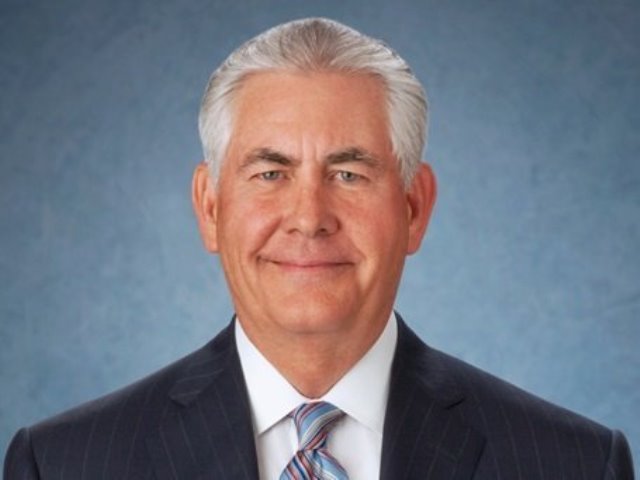In a move that could puzzle international allies of the United States, Secretary of State Rex Tillerson is not only skipping a NATO meeting in Brussels next month but also heading to Moscow.
This week, he will meet with several of his counterparts from NATO member countries, a spokesman confirmed, but will skip a scheduled meeting of foreign ministers.
The US will host the coalition to defeat ISIS starting Wednesday and Tillerson will meet with the NATO members’ foreign ministers in Washington then, the spokesman said.
State Department acting spokesman Mark Toner told reporters Tuesday afternoon that the meeting’s dates didn’t fit in Tillerson’s schedule. The State Department has sent “alternative dates” to NATO for the meeting, and Toner said the agency is “certainly appreciative of the effort to accommodate Secretary Tillerson.”
A NATO official confirmed that the group is still negotiating with the State Department to schedule the meeting, but added that Tillerson’s schedule isn’t the only one they’re coordinating on.
“We are in contact with the State Department on scheduling,” a NATO official told CNN. “All decisions concerning the date of a ministerial are taken by consensus by all 28 allies.”
News of Tillerson’s Russia trip was first reported by Reuters. The spokesman said that the secretary’s trip will come after a foreign ministers’ G7 meeting in Italy.
Acting Deputy Secretary of State Tom Shannon will represent the US at the NATO meeting, which will take place April 5-6 in Brussels. The meeting takes place shortly before Chinese President Xi Jinping visits the US for a crucial meeting with the Trump administration. Tillerson laid the groundwork for the meeting during a visit to Beijing last week.
The State Department would not say that the Xi visit is the reason Tillerson won’t attend the NATO meeting.
NATO snub?
The move could be interpreted as another snub to the US’ traditional allies in favor of Russia, which President Donald Trump routinely spoke about positively on the campaign trail.
While his surrogates — including Tillerson — have sought to reassure NATO partners of the US’ commitment to the organization, Trump has repeatedly criticized the group. In an interview prior to taking the presidency, Trump blasted NATO as “obsolete.”
More recently he spoke of his dissatisfaction with the financial arrangements of NATO and the US’ partners’ defense spending.
During a joint press conference with German Chancellor Angela Merkel, Trump reiterated the US’ commitment to NATO but said allies must pay their “fair share” for defense.
“Many nations owe vast sums of money from past years and it is very unfair to the United States,” he said last week. “These nations must pay what they owe.”
The statement is a mischaracterization of the commitments that NATO members have — under the treaty, countries in the bloc have agreed to target a spend on defense of 2% of GDP, but do not accrue debts if they have not met these targets. Currently five member countries, including the US, spend at least this amount on defense. However, other member countries are aiming to meet the 2% target, according to NATO.
Russia ties
Trump’s presidency has also been blighted by questions surrounding the ties a number of advisers, past and present, have to Russia. US intelligence agencies are also investigating the possibility that the Kremlin sought to influence the US election in Trump’s favor through hacking, among others, the Democratic National Comittee.
On Monday, FBI Director James Comey confirmed his agents were probing whether there was collusion between Trump’s campaign aides and Moscow.
CLARIFICATION: This story has been updated to more accurately reflect Tillerson’s schedule.



